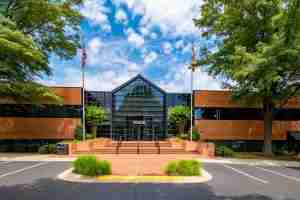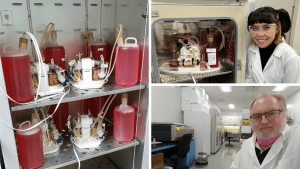
Good News Stories of the Week – Featuring the Farmers, Dad Jokes, and More.
Montgomery County, Maryland Farmers Band Together to Support Food Security
With concerns about food supply chain disruptions, Montgomery County (MOCO) farmers have banded together to help support food security in Maryland communities. Farmers have been labeled as essential workers by the state, and have continued producing food and distributing it at 22 farmer’s markets at various locations across the county.
Local farms have pivoted to online ordering and “touchless” curbside pick up and delivery. What’s more, farmers are working together to find new ways to increase food security and ensure that ample food supply is available, particularly to disadvantaged communities. Area farmers are working closely with the Montgomery County Food Council’s Food Security Task Force to better serve the county’s needs.
County residents looking for more information on these food-related programs can visit the OAG website at Agricultural Services where they will find the Farm-to-table page.
Fearless Terps: Former University of Maryland Athletes on the COVID-19 Frontlines
Former University of Maryland (UMD) track and field athletes are fighting on the frontlines of the COVID-19 pandemic, serving in a variety of critical healthcare provider roles during the ongoing crisis. The stories of these brave UMD alumni were chronicled in a recent story by UMD media writer, Jasmine Washington.
- Class of 2010 distance runner Kelley Pry Marchiano is a physician assistant at an Urgent Care in Whitemarsh, Maryland, which is one of the few Urgent Care facilities offering COVID-19 testing
- Class of 2003 runner Lora Stutzman is a physical therapist at Johns Hopkins Hospital; she has been volunteering to help COVID-19 patients
- Renee Clark Redmon, a class of 2006 runner, is a neonatal intensive care (NICU) nurse that has spearheaded her department’s social distancing protocols during the pandemic
- Class of 2007 runner Kristina Keegan Bonesteel is an outpatient nurse practitioner for an oncology center and has continued to safely practice during the coronavirus pandemic
- Maya Hicks, a 2015 grad and track and field distance runner, is pursuing her MD at Wake Forest Baptist Health and has seen how the hospital system has adapted and treats COVID-19 patients during her clinical rotations
Daily Dad Jokes Bring Smiles to People Out and About During Pandemic
Kensington, Maryland’s Tom Schruben decided to bring some levity and laughter to his neighborhood during the coronavirus pandemic. Every day Schruben posts a “Dad Joke” on a white placard on his front lawn for his neighbors and passers-by to enjoy. Schruben, normally a happy guy, found himself getting grumpy and, after his wife suggested he try the Dad Joke thing out, he reluctantly did so, using a Dad Joke book gift given to him by his 11-year-old daughter. Schruben, his family, their neighbors, joggers, and dog walkers have all gotten a kick out of his bad jokes, brightening their days during this strange, unprecedented time.
Maryland’s SPCA Pivots to Virtual Pet Adoptions During Pandemic
The Maryland SPCA is participating in the Bissell Pet Foundation’s “Empty the Shelters” program, moving its pet adoption process to a virtual format. With help from the Bissell Foundation, the Maryland SPCA has been able to reduce its primary pet adoption fee to just $25. Potential pet adopters can locate a pet online, participate in a phone interview and virtual meet and greet, and then complete the adoption digitally.
Johns Hopkins Training a Cadre of Contact Tracers to Slow COVID-19 Spread
The Johns Hopkins Bloomberg School of Medicine has developed a new online Coursera program to train COVID-19 contact tracers. The course is free and six hours long and enables participants to get certified to become a contact tracer in hard-hit areas like New York state. Just hours after registration opened, some 400 people had signed up for the training course. The course will teach the basics of contact tracing interviewing and will enable trainees to offer self-quarantine guidance. The Johns Hopkins Center for Health Security, according to a story in JHU’s HUB, estimates that approximately 100,000 trained contact tracers will be needed to slow the spread of COVID-19 and to safely open up the economy.
Read more local Good News we’ve found in and round the region 👏
- About the Author
- Latest Posts
Steve brings nearly twenty years of experience in marketing and content creation to the WorkForce Genetics team. He loves writing engaging content and working with partners, companies, and individuals to share their unique stories and showcase their work. Steve holds a BA in English from Providence College and an MA in American Literature from Montclair State University. He lives in Frederick, Maryland with his wife, two sons, and the family dog.




